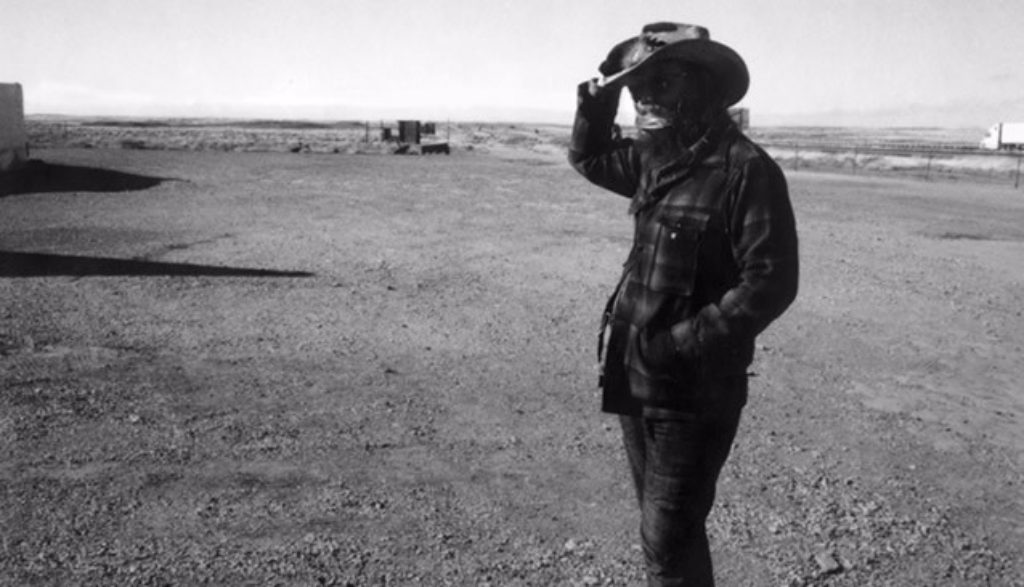
Chris Stapleton is just like Adele.
No, the big-bearded, cowboy-hat-wearing country crooner doesn’t look or sound much like England’s reigning queen of neo-soul. But as Adele does, Stapleton manages to make music—country music, in his case—that instantly sounds old, as if it could have been playing on an AM radio in some farmer’s Ford F-150 in the late ’70s. Call it neo-country.
And that’s exactly the way Stapleton wants it. He told Rolling Stone, “If somebody tells me it sounds dated, I’d say that’s great, as long as the date is 1978. My favorite things are from then.”
Stapleton may be a new name for most casual music fans. But he’s actually one of those behind-the-scenes maestros who’s been honing his brand of songrwriting magic for quite some time. Though Traveller is technically his solo debut, Stapleton has penned hits for a long list of country A-listers, including Kenny Chesney, George Strait, Tim McGraw, Brad Paisley, Dierks Bentley and Luke Bryan.
He’s even a written a song for Adele.
Now the rest of the world is taking notice. Traveller—an album inspired by a road trip Stapleton took after his father’s death—has scooped up a bunch of awards since its 2015 release, including the 2016 Grammy for Best Country Album. Rolling Stone dubbed it “an instant classic.”
Of course, when it comes to country, classic is often code for a wild ride that smashes into both righteous living and whiskey-fueled recklessness.
“Daddy Doesn’t Pray Anymore” at first seems to be about a once faithful father who’s now lost his way (“Daddy doesn’t pray anymore/I guess he’s finished talking to the Lord”). But the song and its subject are both better than that: In the end we realize that Dad doesn’t pray anymore because he’s passed on to glory (“Today I followed Daddy down to church/And listened to the preacher read God’s Word/And sang his favorite hymn, but Daddy didn’t make a sound/This afternoon, we’ll lay him in the ground/Daddy doesn’t pray anymore/I guess he’s finally walking with the Lord”).
“More of You” tenderly praises a wife’s love and looks forward to spending a lifetime together (“When I leave this earth, you’ll be holding my hand/ … And I’ll thank the Lord for the love that we share/You’re heaven to me”). “Parachute” promises a woman with a penchant, it seems, for falling, “Say the word and I’ll be there for you/Baby, I will be your parachute/ … If you think you’re going down/Just know I will be around.”
“Whiskey and You” problematically compares a man’s beloved to his favorite libation, but this guy finally realizes that a woman’s forgiveness isn’t something that’s easily bought. Self-awareness is evident when Stapleton describes whiskey as “a liar that helps me hide from my pain.” He also seems to realize that his addiction is now a vicious cycle of reinforcement (“I’ve got a problem, but it ain’t like what you think/I drink because I’m lonesome, and I’m lonesome ’cause I drink”).
Similarly wry and revealing thoughts pop up on “Nobody to Blame,” when a husband takes stock of his own long list of flaws that made his wife leave him: “I know just what got her gone/Turned my life into this country song/ … I got nobody to blame but me.” “The Devil Named Music” recognizes the high relational cost paid by traveling musicians (“I miss my son/I miss my wife/But the devil named music is taking my life”).
“Was It 26” likewise tells the complicated, whiskey-sopped story of a twentysomething who nearly lost his life in a bottle before recognizing his need for change and spiritual redemption. “Whiskey and You” ponders which is more destructive, alcohol or a damaging relationship with a woman (“One’s the devil, one keeps driving me insane/At times I wonder if they ain’t both the same”). “Tennessee Whiskey” praises a woman for yanking her man out of alcoholism (“Liquor was the only love I’ve known/But you rescued me from reachin’ for the bottom”). It’s too bad that …
… Stapleton can’t stop himself from describing his lady’s effect on him as being akin to hard drink and marijuana. And as the title implies, the singer believes that marijuana can take the edge off life’s hurts on “Might as Well Get Stoned.” Indeed, after getting the boot from his lady, he decides, “Since I’m all alone/I might as well get stoned/ … All I’ve got is time/This bottle’s all I’ve had to be a friend of mine/And since my whiskey’s gone/I might as well get stoned.”
Likewise, “Outlaw State of Mind” toasts reckless rebels who “know how to have a good time,” the kind of folks who “just don’t give a d— all the time” and who “roll their own and drink Carolina ‘shine.” On “The Devil Named Music,” a musician who struggles with the isolation of life on the road rationalizes using various chemical substances (“Sometimes I’m drunk/Sometimes I’m stoned/And, yes, I get tired of being alone”).
Chris Stapleton is truly a traditionalist in many ways. That’s certainly the case stylistically, as he churns out song after country song recalling classic down-home idioms and instrumentation (with an occasional Southern rock flourish).
But it’s also true thematically, for better and for worse when it comes to the country category. There’s lots of whiskey swilling and pot smoking here. And mixed right in between are songs singing the praises of a good wife, a good father and a good God. To fall back on a classic (biblical) analogy that Jesus used in Matthew 13, the wheat and the tares grow side by side on Traveller.


After serving as an associate editor at NavPress’ Discipleship Journal and consulting editor for Current Thoughts and Trends, Adam now oversees the editing and publishing of Plugged In’s reviews as the site’s director. He and his wife, Jennifer, have three children. In their free time, the Holzes enjoy playing games, a variety of musical instruments, swimming and … watching movies.